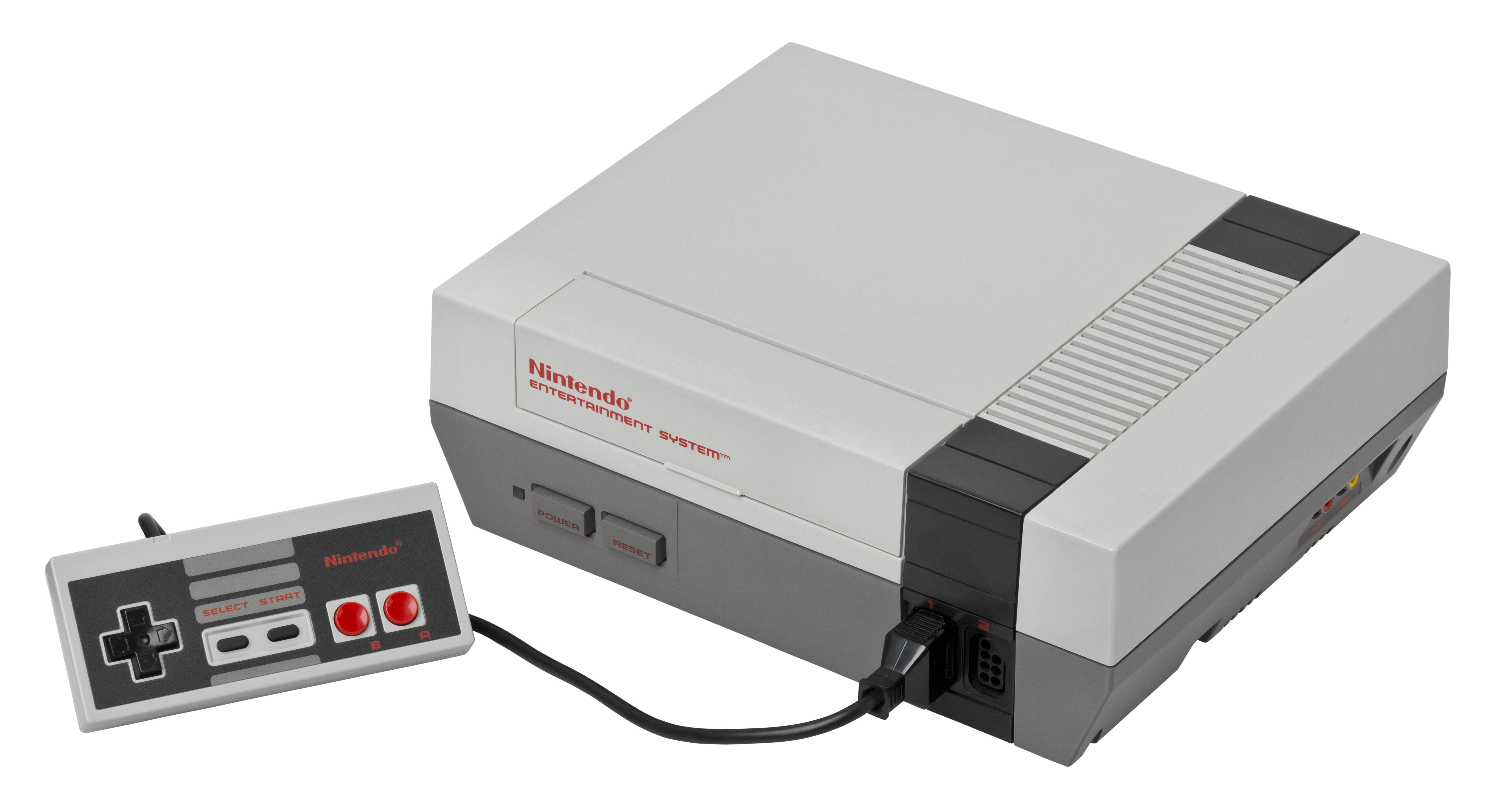|
Elektra Glide
''Elektra Glide'' is a futuristic motorcycle racing game developed by designer Adam Billyard for the Atari 8-bit computers, Amstrad CPC, and Commodore 64. It was published in 1985 by English Software. Mastertronic also published the game in the US. Gameplay The objective of ''Elektra Glide'' is to stay on the track, and reach the tunnel leading to the start of the next section before time runs out. Many strange obstacles stand in the way of achieving this goal, such as spinning prisms, bouncing globes, and airships that drop columns in the player's path. There are three different zones to race across: America, Australia and the British mainland with each zone having different landscape graphics. Reception ''Elektra Glide'' was a commercial success in Europe, selling around forty to fifty thousand units. The game received very positive reviews in the contemporary press. Computer and Video Games reviewer praised the game and rated it as "the second best Atari game released this ... [...More Info...] [...Related Items...] OR: [Wikipedia] [Google] [Baidu] |
David Whittaker (video Game Composer)
David Whittaker (born 24 April 1957 in Bury, Greater Manchester, Bury, England) is an English Video game music, video game composer. He is known for writing video game music in most of the 1980s and early 1990s for different formats. Career Whittaker cited David Bowie, Kraftwerk and Yazoo (band), Yazoo among his influences. Before his video game career, he was in a new romantic band called "Beu Leisure". While composing music, Whittaker directly programmed music; instead of using music composition tools, he used a machine code monitor—then an assembler system or program—while including tools from Supersoft and Commodore International, Commodore. He frequently composed for the format on the Commodore 64 and was impressed with the Amiga's sound capabilities, later using sound effects in his compositions for Amiga. On the Commodore 64 and ZX Spectrum, his most popular compositions are in ''Lazy Jones'', ''Glider Rider (video game), Glider Rider'', ''Global Commander, Armageddo ... [...More Info...] [...Related Items...] OR: [Wikipedia] [Google] [Baidu] |
1985 Video Games
1985 saw many sequels and prequels in video games, such as ''Super Mario Bros.'' and ''Kung-Fu Master (video game), Kung Fu'', along with new titles such as ''Commando (video game), Commando'', ''Duck Hunt'', ''Gauntlet (1985 video game), Gauntlet'', ''Ghosts 'n Goblins (video game), Ghosts 'n Goblins'', ''Gradius (video game), Gradius'', ''Hang-On'', ''Space Harrier'', ''Tetris'' and ''The Way of the Exploding Fist''. The year's highest-grossing arcade video games were ''Hang-On'' and ''Karate Champ'' in the United States, and ''Commando'' in the United Kingdom. The year's bestselling home system was the Nintendo Entertainment System (Famicom) for a consecutive year, while the year's bestselling home video game was ''Super Mario Bros.'' Financial performance In Video games in the United States, the United States, annual Video game crash of 1983, home video game sales fell to ( adjusted for inflation) in 1985. Meanwhile, the arcade video game industry began recovering in 1985. ... [...More Info...] [...Related Items...] OR: [Wikipedia] [Google] [Baidu] |
Video Games Set In The United States
Video is an electronic medium for the recording, copying, playback, broadcasting, and display of moving visual media. Video was first developed for mechanical television systems, which were quickly replaced by cathode-ray tube (CRT) systems, which, in turn, were replaced by flat-panel displays of several types. Video systems vary in display resolution, aspect ratio, refresh rate, color capabilities, and other qualities. Analog and digital variants exist and can be carried on a variety of media, including radio broadcasts, magnetic tape, optical discs, computer files, and network streaming. Etymology The word ''video'' comes from the Latin verb ''video,'' meaning to see or ''videre''. And as a noun, "that which is displayed on a (television) screen," History Analog video Video developed from facsimile systems developed in the mid-19th century. Early mechanical video scanners, such as the Nipkow disk, were patented as early as 1884, however, it took several decades b ... [...More Info...] [...Related Items...] OR: [Wikipedia] [Google] [Baidu] |
Video Games Set In Australia
Video is an Electronics, electronic medium for the recording, copying, playback, broadcasting, and display of moving picture, moving image, visual Media (communication), media. Video was first developed for mechanical television systems, which were quickly replaced by cathode-ray tube (CRT) systems, which, in turn, were replaced by flat-panel displays of several types. Video systems vary in display resolution, Display aspect ratio, aspect ratio, refresh rate, color capabilities, and other qualities. Analog and digital variants exist and can be carried on a variety of media, including radio broadcasts, magnetic tape, optical discs, Video file format, computer files, and Streaming media, network streaming. Etymology The word ''video'' comes from the Latin verb ''video,'' meaning to see or ''videre''. And as a noun, "that which is displayed on a (television) screen," History Analog video Video developed from facsimile systems developed in the mid-19th century. Early mecha ... [...More Info...] [...Related Items...] OR: [Wikipedia] [Google] [Baidu] |
Video Games Developed In The United States
Video is an electronic medium for the recording, copying, playback, broadcasting, and display of moving visual media. Video was first developed for mechanical television systems, which were quickly replaced by cathode-ray tube (CRT) systems, which, in turn, were replaced by flat-panel displays of several types. Video systems vary in display resolution, aspect ratio, refresh rate, color capabilities, and other qualities. Analog and digital variants exist and can be carried on a variety of media, including radio broadcasts, magnetic tape, optical discs, computer files, and network streaming. Etymology The word ''video'' comes from the Latin verb ''video,'' meaning to see or ''videre''. And as a noun, "that which is displayed on a (television) screen," History Analog video Video developed from facsimile systems developed in the mid-19th century. Early mechanical video scanners, such as the Nipkow disk, were patented as early as 1884, however, it took several decades ... [...More Info...] [...Related Items...] OR: [Wikipedia] [Google] [Baidu] |
Motorcycle Video Games
A motorcycle (motorbike, bike; uni (if one-wheeled); trike (if three-wheeled); quad (if four-wheeled)) is a lightweight private 1-to-2 passenger personal motor vehicle steered by a handlebar from a saddle-style seat. Motorcycle designs vary greatly to suit a range of different purposes: long-distance travel, commuting, cruising, sport (including racing), and off-road riding. Motorcycling is riding a motorcycle and being involved in other related social activities such as joining a motorcycle club and attending motorcycle rallies. The 1885 Daimler Reitwagen made by Gottlieb Daimler and Wilhelm Maybach in Germany was the first internal combustion, petroleum-fueled motorcycle. In 1894, Hildebrand & Wolfmüller became the first series production motorcycle. Globally, motorcycles are comparable numerically to cars as a method of transport: in 2021, approximately 58.6 million new motorcycles were sold around the world, while 66.7 million cars were sold over the same period. ... [...More Info...] [...Related Items...] OR: [Wikipedia] [Google] [Baidu] |
Science Fiction Racing Games
Science is a systematic discipline that builds and organises knowledge in the form of testable hypotheses and predictions about the universe. Modern science is typically divided into twoor threemajor branches: the natural sciences, which study the physical world, and the social sciences, which study individuals and societies. While referred to as the formal sciences, the study of logic, mathematics, and theoretical computer science are typically regarded as separate because they rely on deductive reasoning instead of the scientific method as their main methodology. Meanwhile, applied sciences are disciplines that use scientific knowledge for practical purposes, such as engineering and medicine. The history of science spans the majority of the historical record, with the earliest identifiable predecessors to modern science dating to the Bronze Age in Egypt and Mesopotamia (). Their contributions to mathematics, astronomy, and medicine entered and shaped the Greek natural philo ... [...More Info...] [...Related Items...] OR: [Wikipedia] [Google] [Baidu] |
Commodore 64 Games ...
{{short description, None This is a list of games for the Commodore 64 personal computer system, sorted alphabetically. See Lists of video games for other platforms. Because of the length of the list, it has been broken down to two parts: * List of Commodore 64 games (A–M) * List of Commodore 64 games (N–Z) See also * Commodore 64 Games System * Commodore 64 The Commodore 64, also known as the C64, is an 8-bit computing, 8-bit home computer introduced in January 1982 by Commodore International (first shown at the Consumer Electronics Show, January 7–10, 1982, in Las Vegas). It has been listed in ... [...More Info...] [...Related Items...] OR: [Wikipedia] [Google] [Baidu] |
Atari 8-bit Computer Games
Atari () is a brand name that has been owned by several entities since its inception in 1972. It is currently owned by French holding company Atari SA (formerly Infogrames) and its focus is on "video games, consumer hardware, licensing and blockchain". The original Atari, Inc., founded in Sunnyvale, California, United States in 1972 by Nolan Bushnell and Ted Dabney, was a pioneer in arcade games, home video game consoles, and home computers. The company's products, such as ''Pong'' and the Atari 2600, helped define the electronic entertainment industry from the 1970s to the mid-1980s. In 1984, as a result of the video game crash of 1983, the assets of the home console and computer divisions of the original Atari Inc. were sold off to Jack Tramiel's Tramel Technology Ltd., which then renamed itself to Atari Corporation, while the remaining part of Atari, Inc. was renamed Atari Games Inc. In early 1985, Warner established a new corporation jointly with Namco subsequently named ... [...More Info...] [...Related Items...] OR: [Wikipedia] [Google] [Baidu] |
Amstrad CPC Games
Amstrad plc was a British consumer electronics company, founded in 1968 by Alan Sugar. During the 1980s, the company was known for its home computers beginning with the Amstrad CPC and later also the ZX Spectrum range after the Sinclair deal, which led it to have a substantial share of the home computer market in Britain. In the following decade it shifted focus towards communication technologies, and its main business during the 2000s was the manufacture of satellite television set-top boxes for Sky, which Amstrad had started in 1989 as the then sole supplier of the emerging Sky TV service. Headquartered in Brentwood, the company was listed on the London Stock Exchange from 1980 to 2008, the year when Sugar stepped down after 40 years. After acquiring Betacom and Viglen, Amstrad was broken up in 1997 but the name was soon revived when successor Betacom plc renamed itself to Amstrad plc. Amstrad was a FTSE 100 Index constituent up until the company was acquired by BSkyB ... [...More Info...] [...Related Items...] OR: [Wikipedia] [Google] [Baidu] |
Computer Gamer
Argus Press was a British publishing company. It was acquired by British Electric Traction (BET) in 1966, and became the publishing arm of that company. It was the subject of one of the most hotly contested management buyouts of the 1980s when a management team led by Kimble Earl, George Fowkes, and Scott Smith secured financing of £207m from forty national and international banks to acquire the UK and US businesses from BET. The acquisition was of particular note as the publisher Robert Maxwell was among the rival bidders, and widely considered as capable of out-witting the management team. Only an eleventh-hour intervention by Earl – exposing members of Maxwell's secret consortium as rival newspaper publishers which meant Maxwell would fall foul of the Monopolies Commission – brought success for the management team. The new company traded under the name of Team Argus. Its portfolio of businesses included the largest group of paid-for and free weekly newspapers in the UK, ... [...More Info...] [...Related Items...] OR: [Wikipedia] [Google] [Baidu] |






